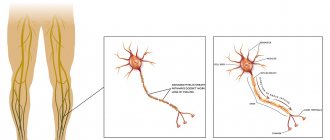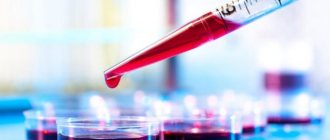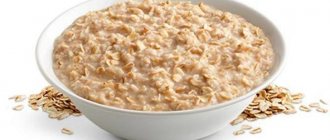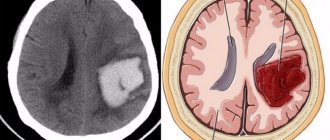Anemia: what vitamins to take?
What vitamins should you take if you have anemia? The answer to this question depends on what stage of its course the anemia is at at a particular moment. In addition, it is necessary to first examine the patient, carefully examine his condition, collect anamnesis and refer him for appropriate tests. It is also hardly possible to give the exact name of the drug right away. There are quite a lot of such vitamins and multivitamin complexes on the pharmaceutical market, but the choice depends on the specific situation.
How to take iron supplements correctly?
How to take vitamins for anemia? To prevent the development of iron deficiency, doctors prescribe iron supplements.
The doctor prescribes medications that will help increase hemoglobin in the blood in the shortest possible time without causing side effects. The recommended daily dose of iron is 100-180 mg. This amount of the element compensates for the body’s costs of producing the required volume of hemoglobin. If you exceed the dose, your general health may deteriorate significantly. Under such conditions, side effects occur. If you approach the therapy process responsibly, the hemoglobin level will return to normal in 14-29 days. Laboratory blood tests can identify abnormalities. When the indicator reaches the desired value, you must continue to take vitamins for anemia for at least a month and a half.
What vitamins are available for anemia?
It is, of course, advisable, first of all, to review your own diet and try to enrich it with foods that are rich in iron and folic acid, as well as vitamin B12. But this is not the only step that needs to be taken on the path to restoring your own health.
Anemia: what vitamins to take? Vitamin deficiency anemia involves, as a therapy, replenishing the reserves of vitamins, which are less in the body than it should be.
So, the most important vitamins to take for anemia are considered to be:
- Ascorbic acid. This vitamin promotes more efficient absorption of iron. In addition, this vitamin takes a very active part in all metabolic processes occurring in the body. The problem is that during cooking, this vitamin is destroyed. Since there is a lot of vitamin in plant foods, in winter the human body may experience a serious deficiency in it;
- Cyanocobalamin. This vitamin is produced by intestinal microflora. Absorption of the vitamin occurs in the small intestine of the digestive system. Anemia appears when the absorption of this element in the intestine is impaired or when a small amount is supplied with food;
- Folic acid. This element helps the circulatory system to function fully. A small amount of this vitamin also leads to the development of anemia in the patient. Folic acid is formed in the intestines. A large amount of the vitamin is found in yeast, wholemeal flour, lettuce and liver;
- Pyridoxine. The participation of this vitamin in the process of hematopoiesis is essential. The vitamin can be produced in the human body, but part of it must also come from food.
These vitamins must be taken into the body with food or separately as part of medications. But more often, doctors prescribe multivitamin and mineral complexes to people with anemia. Among them, the most common are considered to be:
- Globiron. This drug contains pyridoxine, folic acid, iron and cyanocobalamin;
- Tardiferon. This complex consists of iron and ascorbic acid as an auxiliary element;
- Fenyuls. This drug saturates the body of an anemic person with ascorbic acid, iron, folic acid, vitamins B1 and B2, as well as B6 and B12;
- Gemsineral-TD. The drug contains folic acid, cyanocobalamin and iron.
Iron deficiency anemia: general information about the pathology, the reasons for its development
The term “iron deficiency anemia” (IDA) refers to a reduced amount of hemoglobin, the iron-containing pigment of red blood cells that gives the blood its red color.
The reasons for this deviation are varied: - poor nutrition; - significant blood loss during menstruation; - inability to fully absorb iron by the body; - internal bleeding due to organ diseases and malignant neoplasms, etc. At the beginning of the development of IDA, the patient does not experience pronounced symptoms. Subsequently, against the background of a gradual decrease in hemoglobin levels, the person becomes irritable and inattentive. Patients suffering from IDA complain of dizziness and headaches, weakness, shortness of breath, and fatigue. In especially severe cases, the patient has difficulty breathing, the tongue becomes inflamed, the heart rate increases, and pain occurs during muscle exertion. How to Simply Recommend
Why the medicine does not work The key to successful treatment is, of course, following all the doctor’s recommendations and informing him of all significant changes during therapy. However, a specialist can talk as much as he wants about the regimen and duration of taking the drug, but most patients will still violate these rules. Read more
Vitamin b12: anemia
Vitamin B12 for anemia is needed if there is a persistent deficiency of cyanocobalamin.
Parenteral administration of this vitamin and corticosteroid therapy are often necessary. A corticosteroid such as prednisolone is used very often in the treatment of anemia of autoimmune etiology.
That is, treatment for B12-deficiency anemia involves completely saturating the body with this vitamin and supportive therapy, as well as taking preventive measures regarding the development of anemia. If the patient's intestines cannot fully absorb this vitamin, treatment in the form of injections is necessary. Such injections are indicated to be given daily, sometimes twice a day. After ten days, it is necessary to reduce the dose and continue treatment for another ten days.
At the next stage, cyanocobalamin is administered for three months and is administered once a week. The treatment does not stop further. For another six months, injections of the vitamin once every two weeks are indicated. The level of vitamin content in the body reaches the desired value after about one and a half to two months of such treatment, but neurological symptoms will be eliminated only after six months. If a person has impaired absorption of intestinal substances, he may need treatment throughout his life.
Note to the patient
You should be aware that the instructions provide only approximate information that should not be taken as the basis for treatment. The dosage of the medication should be determined strictly by the doctor, depending on the detected degree of anemia. First of all, it is necessary to take a general clinical blood test to determine the stage of the disease. Based on the results of the study, the treating specialist will determine an individual treatment regimen. Self-medication is prohibited, as this often provokes the development of health problems. If you exceed the permissible dose, side effects will certainly occur. If you have anemia, vitamin deficiencies can be corrected with proper nutrition. The diet should contain only healthy foods.
Source
Anemia: vitamin deficiency
Anemia: lack of vitamin – what else can be said about this disease? Vitamin deficiency can most often be caused by the following reasons:
- Insufficient intake of vitamins into the body with food;
- Commitment to veganism and vegetarianism, as a result of which a person receives few nutrients;
- Constant monotonous human nutrition, in which fats and carbohydrates predominate. In addition, the same effect will occur if a person’s diet is low in dairy products, fruits, vegetables, nuts, meat and fish products.
Addison-Beermer anemia
Addison-Beermer disease is a deficiency of vitamin B12 in the body. It is also called pernicious anemia. This type of vitamin deficiency is rare, especially in young people. There are 110-130 cases of Birmer's disease per 100,000 people. But it occurs more often in older people.
There are three main factors that contribute to the development of the disease:
- genetic predisposition;
- severe atrophic gastritis;
- autoimmune diseases.
Women suffer from Birmer's disease slightly more often than men. Symptoms include loss of vitality, increased fatigue and drowsiness. A quarter of patients report pain in the tongue and mouth. Sometimes appetite disappears and body weight decreases.
Treatment for Birmer's disease consists of replenishing vitamin B12 deficiency. Changing your diet won't help here. This serious disease with possible severe consequences is treated with large doses of medication. At the initial stage of therapy, Oxycobalamin in ampoules is considered the most effective. After a course lasting 6 months, a drop in iron levels may be observed. In this case, iron-containing medications will be prescribed.
Vitamins for anemia in women
Iron vitamins for anemia in females will be exactly the same as vitamins for men. However, before prescribing any drug to a woman, the doctor must collect complete information about the patient. It is also necessary to study whether the woman has an individual tolerance to certain drugs.
All drugs are available in different forms. These can be tablets, capsules and syrups, as well as solutions for injection. The most commonly prescribed drugs are Actiferrin (available in the form of capsules and syrup; represented by divalent iron), Ferlatum (ferric iron) and Maltofer (in the form of drops, tablets or syrup).
But these are not all the drugs that are available on the pharmaceutical market. Their selection is truly diverse. But what is better to choose depends on each individual case. Moreover, it is not the patient who should make the final decision regarding the choice. This should be exclusively a medical competence.
Multivitamin complexes for women
Women can take Feroglobin-B12. This is a combination product in the form of syrup.
The composition includes the following active substances:
folic and pantothenic acids;
Feroglobin-B12 is a drug that is designed to replenish the body with iron.
Feroglobin-B12 is intended for use in the prevention of iron and vitamin B12 deficiency conditions. Syrup can be drunk during pregnancy, because at this time the body's need for nutrients increases. Contraindication for use: hypersensitivity to the components. A side symptom is allergies.
Yodilife is a drug that is recommended for use for 1 month (or more) before conception and during the first trimester of pregnancy. Dosage form: tablets.
Active substances in the composition:
Yodilife prevents deficiency of vitamin B12, folic acid and iodine.
Contraindications - hypersensitivity, breastfeeding period, hereditary galactose intolerance, lactase deficiency, malabsorption of galactose or glucose. Side effects - nausea, vomiting, diarrhea, skin rashes, itching, joint pain, etc.











